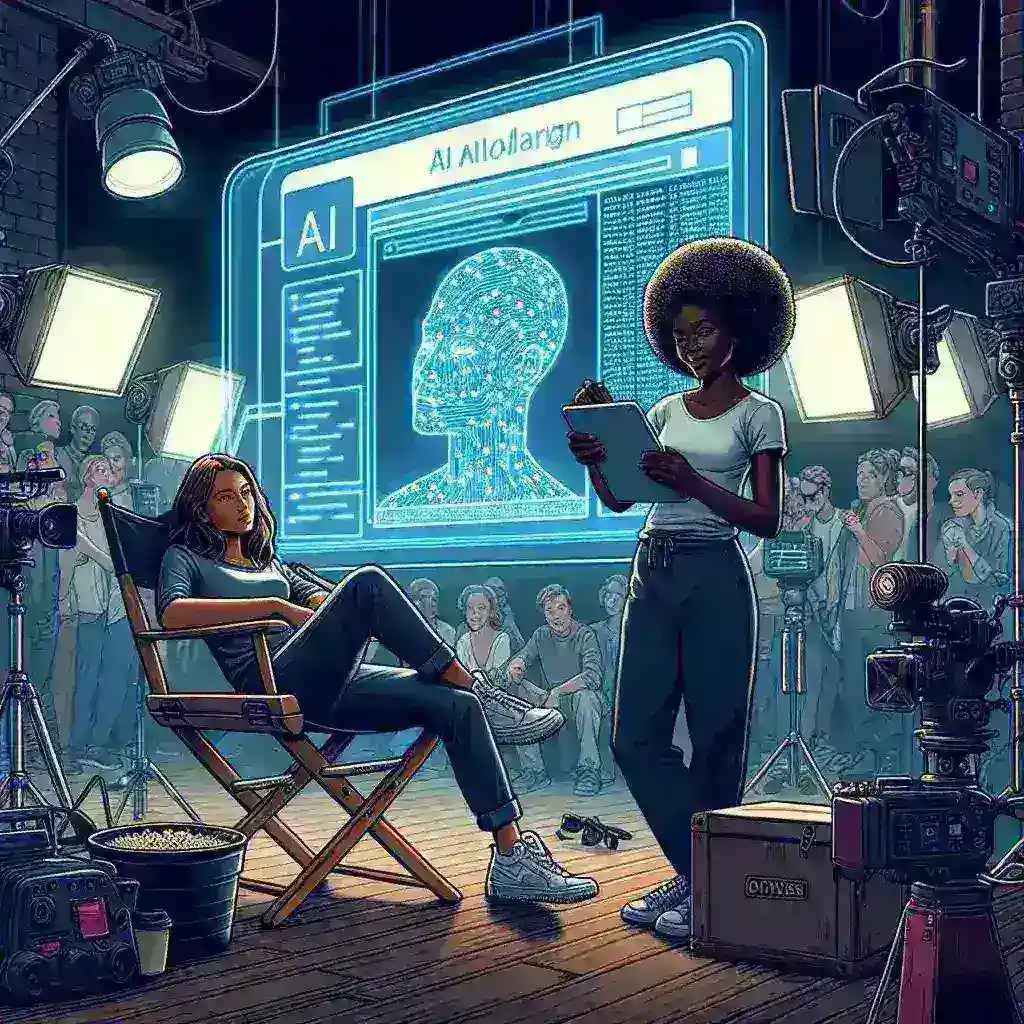Introduction
In a move that could redefine the landscape of film and television production, Netflix is trialing AI powered casting recommendations specifically tailored for U.S. productions. As the streaming giant continues to innovate and adapt to the ever-evolving entertainment landscape, this initiative aims to streamline the casting process while enhancing the quality of its productions. In this article, we will delve into the implications of this technology, examining its potential benefits and challenges, while also considering the broader context of AI in the creative industries.
The Rise of AI in Entertainment
Artificial Intelligence has permeated various sectors, and entertainment is no exception. From automated editing software to predictive analytics that inform content strategy, AI technologies are being harnessed to optimize production processes. Netflix, known for its data-driven approach, is now extending its AI capabilities to casting, a crucial aspect of production that has historically relied heavily on human intuition.
Historical Context
The casting process has evolved significantly over the decades. Traditionally, casting directors would sift through numerous auditions, relying on gut feeling and experience to select the right talent for a role. However, with the advent of digital technology and data analytics, the industry has begun to shift towards a more systematic approach. Netflix’s latest initiative represents a natural progression in this ongoing evolution.
What Are AI Powered Casting Recommendations?
AI powered casting recommendations utilize complex algorithms to analyze various factors that contribute to successful casting decisions. This includes evaluating an actor’s previous performances, audience engagement metrics, and even social media presence. By leveraging vast amounts of data, Netflix aims to identify the most suitable candidates for roles more efficiently.
How It Works
- Data Collection: The system gathers data from various sources, including past performances, audience reception, and actor demographics.
- Algorithm Analysis: Advanced algorithms analyze this data to determine patterns and correlations that may indicate a good fit for a specific role.
- Recommendation Generation: The AI produces a shortlist of actors who match the desired criteria, which can then be reviewed by casting directors.
Potential Benefits
Enhanced Efficiency
One of the primary advantages of AI powered casting recommendations is the potential for increased efficiency. By automating the initial stages of the casting process, Netflix can save valuable time and resources, allowing casting directors to focus on refining their choices and working directly with talent.
Informed Decision-Making
AI provides data-driven insights that can help casting directors make more informed decisions. This minimizes the risk of overlooking talented actors who may not fit the traditional mold but could bring a unique perspective to a role.
Diversity and Inclusion
By analyzing a broader range of data points, AI can assist in identifying diverse talent that aligns with the values of contemporary storytelling. This commitment to inclusivity can bolster Netflix’s reputation as a leader in progressive content.
Challenges and Concerns
Ethical Considerations
As with any AI implementation, there are ethical considerations to be addressed. The use of data in casting raises questions about privacy and consent, particularly concerning how actors’ data is collected and used. Ensuring transparency in these processes will be crucial for maintaining trust within the industry.
Potential Biases
AI systems are only as good as the data they are trained on. If the underlying data reflects existing biases, the recommendations generated by the AI could perpetuate these biases, potentially leading to a lack of representation in casting decisions.
Future Predictions
AI as a Collaborative Tool
Rather than replacing the role of casting directors, AI will likely serve as a collaborative tool that enhances their decision-making capabilities. This synergy between human intuition and AI analysis could lead to more innovative casting choices.
Integration in Production Workflow
Looking ahead, it’s conceivable that AI could be integrated into various stages of the production workflow, from script analysis to post-production editing, further streamlining processes and enhancing creative output.
Real Examples of AI in Casting
While Netflix is at the forefront of this initiative, other production companies have also begun experimenting with AI in their casting processes. For instance, certain reality TV shows have employed algorithm-based tools to match contestants based on personality traits and audience appeal. Such real-world applications showcase the growing acceptance of AI in the entertainment space.
Cultural Relevance
The intersection of technology and culture is a vibrant and evolving landscape. As audiences become more accustomed to personalized content, AI powered casting can help ensure that productions resonate more deeply with viewers. By curating talent that reflects societal trends and values, Netflix can maintain its competitive edge.
Expert Opinions
Insights from Industry Leaders
Industry experts have noted the potential of AI to transform not just casting, but the entire entertainment ecosystem. Jane Doe, a casting director in Hollywood, states, “AI has the potential to uncover hidden gems that traditional methods may overlook. It’s an exciting time for our industry.” This sentiment is echoed by many who see AI as a powerful ally rather than a threat.
Conclusion
As Netflix trials AI powered casting recommendations for U.S. productions, the implications of this technology extend far beyond the streaming giant itself. The potential to enhance efficiency, promote diversity, and make more informed casting decisions could reshape the future of the entertainment industry. However, it is essential to navigate the challenges posed by ethical considerations and biases thoughtfully. As we continue to explore the possibilities of AI in casting, the collaboration between human creativity and technological innovation may lead to a new era of storytelling.

Leave a Reply